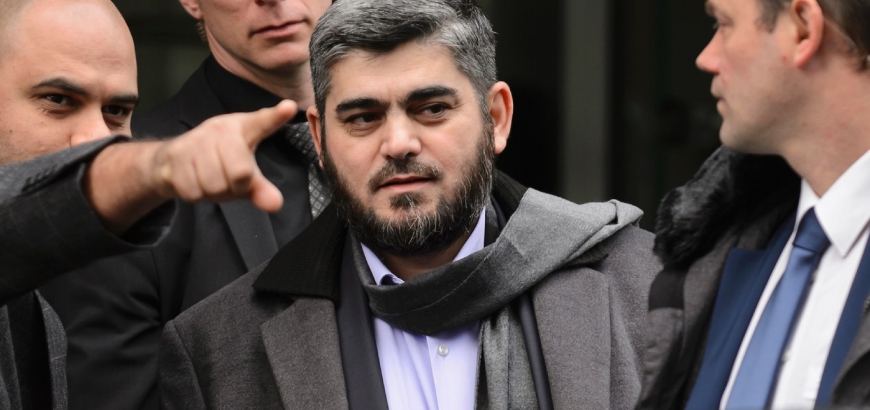The head of the Syrian opposition delegation to the Astana conference, Mohammed Alloush, expressed the dissatisfaction of the entire opposition about the meeting, strongly denying reports that the opposition had given concessions as a result of their losses on the ground. He also denied reports that the regime had succeeded in lobbying rebel groups and convinced them to partner with it in exchange for giving rebels broad powers in the areas under their control.
Alloush told the DPA news agency in a phone call from Astana the opposition “was not completely satisfied with the talks.” He added that rebel groups had promised to carry out the ceasefire, handing over a document which included procedures and mechanisms to concerned parties, including the Russians. Alloush said that the opposition was assured that within 10 days an agreement would be reached to implement the truce between the two sides with the aim of improving living conditions and releasing detainees.
The opposition negotiator declared that opposition representatives will continue to insist on all their positions, foremost the rejection of any Iranian role in resolving the crisis and the building of Syria's future. He said that Tehran must withdraw with their tools because they are occupiers and aggressors.
Alloush denied reports that the regime had been successful in lobbying some armed rebels groups, especially in light of the opposition's recent losses on the ground, and due to enticements, such as offering them broad local administrations in the areas under their control. He said that there was no agreement between any faction and the regime, and that the proposal was not offered to any of the groups.
He did, however, acknowledge reports that the opposition was forced to the table at Astana as a result of the rebel’s major losses on the ground and the lack of any horizon in the current war. He said that at the same time this did not mean in any case that they had given concessions or that the Astana conference was a means of imposing Russian dictates, specifically on the opposition as some had reported.
The Kurds were represented within the armed factions because the talks were concerning military and not political negotiations, he explained.
Alloush also denied reports that the opposition had been pressured to fight against Jabhat Fateh al-Sham (formerly Nusra Front), saying that in contrast some of the Free Syrian Army factions had experienced attacks by them.
He said that the opposition is not under any pressure from regional or international parties to fight the group, which is not included within the truce. He explained that unfortunately Fateh al-Sham has started to carry out attacks against some groups such as Jaish al-Mujahideen, Saqour al-Sham, Jaish al-Islam, and the Levant Front, adding that now the situation is heated.
He called on the former Al-Qaeda affiliate to be reasonable and stay away from accusations of treason and put the interests of the Syrian people first, urging it to join sides with the other revolutionary groups.
This article was translated and edited by The Syrian Observer. Responsibility for the information and views set out in this article lies entirely with the author.


